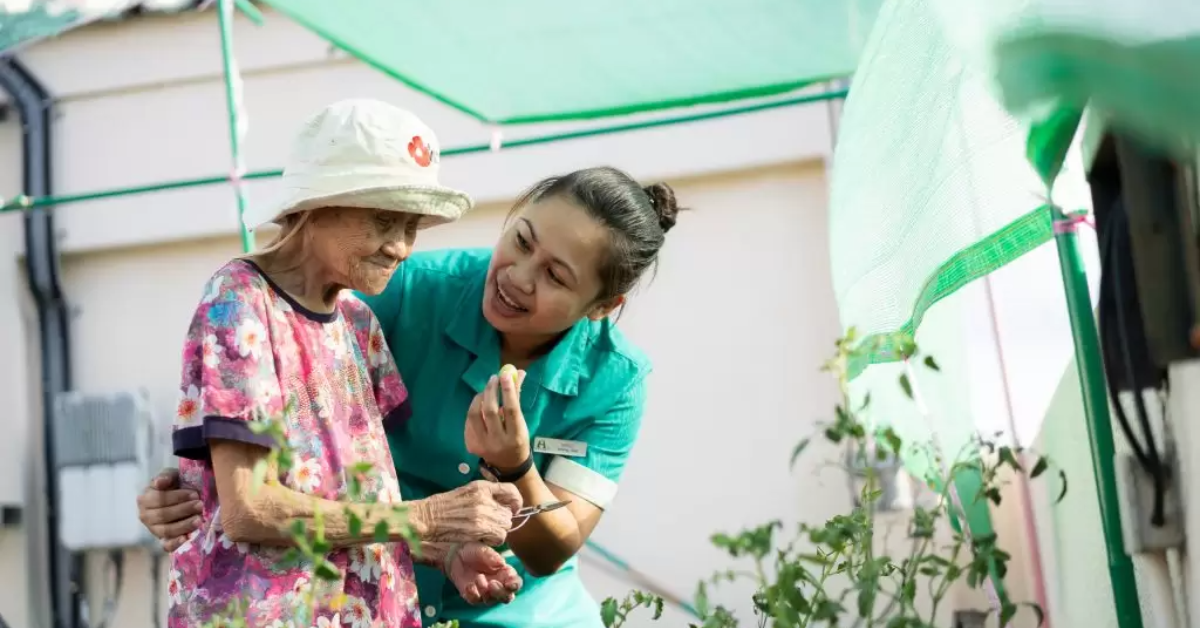Dementia Care in Singapore: A Complete Guide for Families and Caregivers
Dementia Care Singapore: Dementia is a progressive condition that significantly impacts an individual’s memory, cognition, and behavior. It is one of the most challenging conditions that both the person affected and their caregivers can face. In Singapore, the aging population and the increasing prevalence of dementia have highlighted the need for specialized care and support systems. This article explores the various aspects of dementia care in Singapore, including available services, caregiver support, and the resources that make managing dementia more manageable.
What is Dementia?
Dementia is a broad term that refers to a decline in mental ability severe enough to interfere with daily life. It is caused by damage to brain cells, which disrupts communication between them. While dementia primarily affects older adults, it is not a natural part of aging.
Common Types of Dementia
-
Alzheimer’s Disease: The most common form of dementia, Alzheimer’s disease is characterized by memory loss, confusion, and behavioral changes.
-
Vascular Dementia: Caused by impaired blood flow to the brain, often due to a stroke or other cardiovascular conditions.
-
Dementia with Lewy Bodies: Characterized by the presence of abnormal protein deposits in the brain, leading to cognitive and motor symptoms.
-
Frontotemporal Dementia: Affects the frontal and temporal lobes of the brain, resulting in changes in personality, behavior, and speech.
Dementia Care Services in Singapore
Singapore has developed a comprehensive network of services designed to help individuals with dementia and their families navigate the challenges of the condition. These services range from institutional care to community-based support programs and caregiver resources.
Specialized Dementia Care Facilities
For individuals with dementia who require full-time care, specialized dementia care facilities offer tailored services that focus on both the physical and emotional needs of residents. These facilities provide structured routines, specialized therapies, and a safe environment to prevent wandering, which is common among dementia patients.
Many of these facilities offer:
-
Rehabilitation Programs: Designed to maintain or improve cognitive and physical abilities.
-
Nursing Homes: Offer residential care with 24/7 monitoring and medical assistance.
-
Home Care Services: For individuals who prefer to remain at home but require assistance with daily activities or medical care.
Day Care and Support Programs
In addition to residential care, day care services offer a solution for families who are unable to provide full-time care but still want to ensure their loved ones receive proper supervision and stimulation. These programs often include:
-
Cognitive and Physical Activities: Engaging activities designed to stimulate the mind and maintain motor skills.
-
Social Interaction: Providing dementia patients with opportunities to interact with others facing similar challenges.
-
Caregiver Support: These programs also help relieve the burden on caregivers by providing respite.
Support for Caregivers
Caregivers of individuals with dementia often experience physical, emotional, and financial strain. Singapore has numerous resources to support caregivers and make their responsibilities more manageable.
Caregiver Support Groups
Support groups are crucial for caregivers to connect with others who understand their struggles. These groups provide a safe space to share experiences, learn coping strategies, and receive emotional support. Caregiver support is vital for preventing burnout and promoting the well-being of the person caring for a loved one with dementia.
Caregiver Training Programs
Training programs teach caregivers essential skills for managing dementia at home. These include strategies for improving communication, managing challenging behaviors, and providing safe environments. Caregivers are also educated on recognizing signs of stress or exhaustion and when to seek help.
Respite Care
For caregivers who need a break, respite care services are available. These services provide short-term relief by offering temporary care for the individual with dementia, allowing caregivers to rest and recharge. This service is critical in preventing caregiver fatigue, which can impact both the caregiver’s health and the quality of care provided to the person with dementia.
Financial Assistance for Dementia Care
The financial cost of dementia care can be overwhelming, especially if long-term care is required. Fortunately, Singapore offers several financial assistance programs to help with the costs associated with dementia care.
-
Medifund: A government assistance scheme for individuals who require help with medical expenses but do not have enough financial resources.
-
Seniors’ Mobility and Enabling Fund: Provides subsidies for older adults to purchase assistive devices and other necessary healthcare items.
-
Community Health Assist Scheme (CHAS): A program that offers subsidies for medical and dental care at participating clinics for lower-income individuals.
These programs aim to make dementia care more affordable, easing the financial burden on families.
Legal Considerations for Dementia Care
Legal issues are an important aspect of dementia care. As the individual’s cognitive function deteriorates, they may lose the ability to make decisions about their care, finances, or medical treatments. In Singapore, legal tools such as the Lasting Power of Attorney (LPA) allow individuals to appoint someone they trust to make decisions on their behalf when they are no longer able to do so.
Additionally, Advance Medical Directives (AMD) enable individuals to state their wishes regarding medical treatment if they become terminally ill and unable to communicate their preferences.
Building Dementia-Friendly Communities
Creating a dementia-friendly community is crucial for supporting individuals with dementia as they navigate their daily lives. These communities are designed to be more understanding, accessible, and supportive of people living with dementia.
Dementia-Friendly Initiatives in Singapore
Several initiatives in Singapore aim to foster such communities, including:
-
Dementia-Friendly Businesses: Encouraging businesses to train their staff to recognize signs of dementia and provide assistance when needed.
-
Public Awareness Campaigns: Aiming to educate the public about dementia and reduce stigma associated with the condition.
-
Safe Spaces: Some areas in Singapore are designated as dementia-friendly zones, where people with dementia can safely navigate without fear of getting lost.
Technological Innovations in Dementia Care
Technology plays an increasingly important role in dementia care. Innovations such as tracking devices and apps help caregivers monitor the safety and well-being of their loved ones. For example, GPS-enabled wearables can help locate individuals who may wander, while apps can provide caregivers with resources, advice, and ways to track the health of the person they are caring for.
Frequently Asked Questions (FAQs)
Q1: What types of dementia care services are available in Singapore?
A1: Singapore offers various dementia care services, including residential nursing homes, day care programs, home care services, and caregiver support programs. These services provide a range of care options to meet different needs.
Q2: Are there programs to help caregivers of people with dementia?
A2: Yes, there are numerous caregiver support programs available in Singapore. These include support groups, training programs, respite care services, and financial assistance.
Q3: How can I financially support dementia care for a loved one?
A3: Singapore offers several financial assistance programs such as Medifund, the Seniors’ Mobility and Enabling Fund, and the Community Health Assist Scheme (CHAS) to help cover the costs of dementia care.
Q4: What legal steps should I take if my loved one has dementia?
A4: It is advisable to set up a Lasting Power of Attorney (LPA) to appoint a trusted individual to make decisions on behalf of your loved one. You may also consider setting up an Advance Medical Directive (AMD) for end-of-life care.
Q5: How can I help create a dementia-friendly community?
A5: You can help by promoting awareness of dementia, encouraging local businesses to train staff to assist those with dementia, and supporting public initiatives that aim to create safe spaces for people with dementia.
Conclusion
Dementia care in Singapore has evolved significantly, offering a wide range of services and support for individuals with dementia and their caregivers. From specialized care facilities to community-based programs and legal support, there are numerous resources available to make life easier for those affected by this condition. By continuing to develop dementia-friendly communities and providing robust caregiver support, Singapore is setting an example for how societies can effectively support individuals living with dementia.







